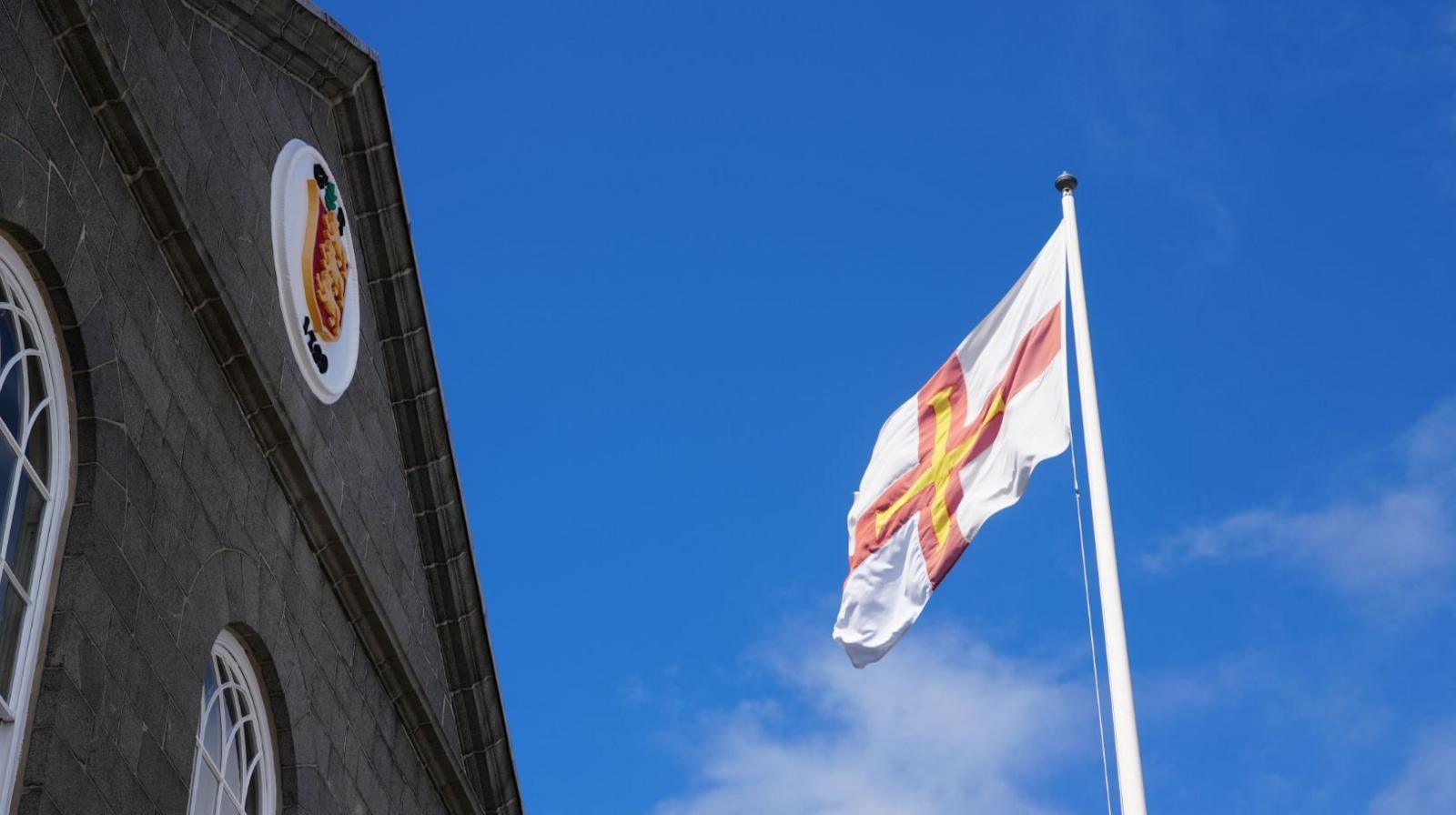More Guernsey political parties predicted
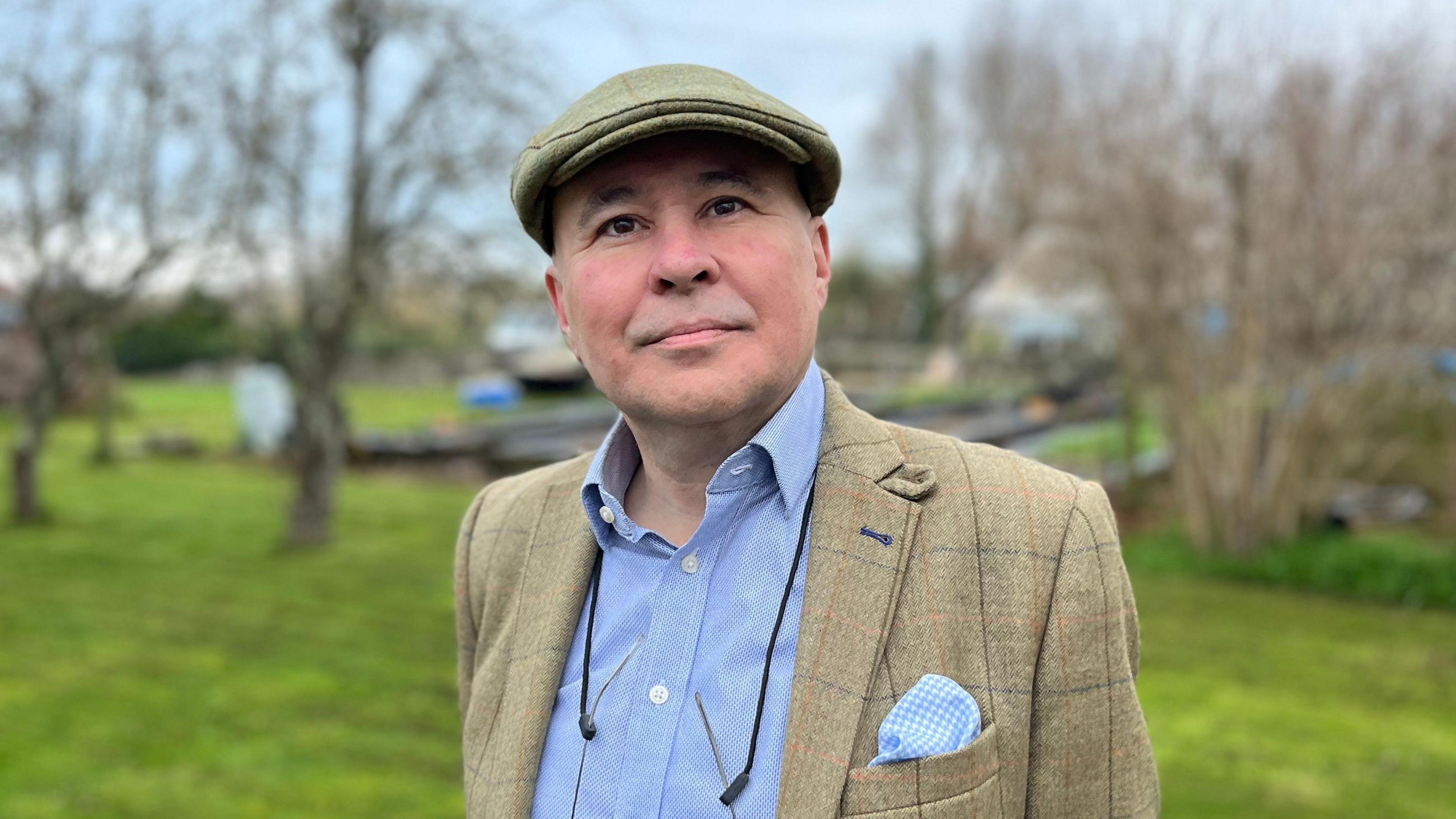
Deputy Carl Meerveld created a political party, the Islanders' Association, in the last States' term
- Published
The politician charged with organising Guernsey's 2025 general election has predicted more political parties will be formed before the 18 June poll.
States Assembly and Constitution Committee (SACC) President Carl Meerveld said it was a "natural progression" that people would form parties.
So far, only one new political grouping has emerged this term, Future Guernsey.
Outgoing Health and Social Care President Al Brouard said parties had "struggled this term" and a party system "isn't right" for the island.
At the 2020 general election, there were three political parties, the Guernsey Partnership of Independents, which had 10 out of its 21 candidates elected in the first island-wide poll; the Guernsey Party, which saw six of its eight candidates elected; and the Alliance Party, which did not see any candidates elected.
The Guernsey Partnership of Independents was wound up in 2021, while the Guernsey Party is being disbanded ahead of the 2025 general election, with former leader Deputy Simon Vermeulen set to stand as an independent.
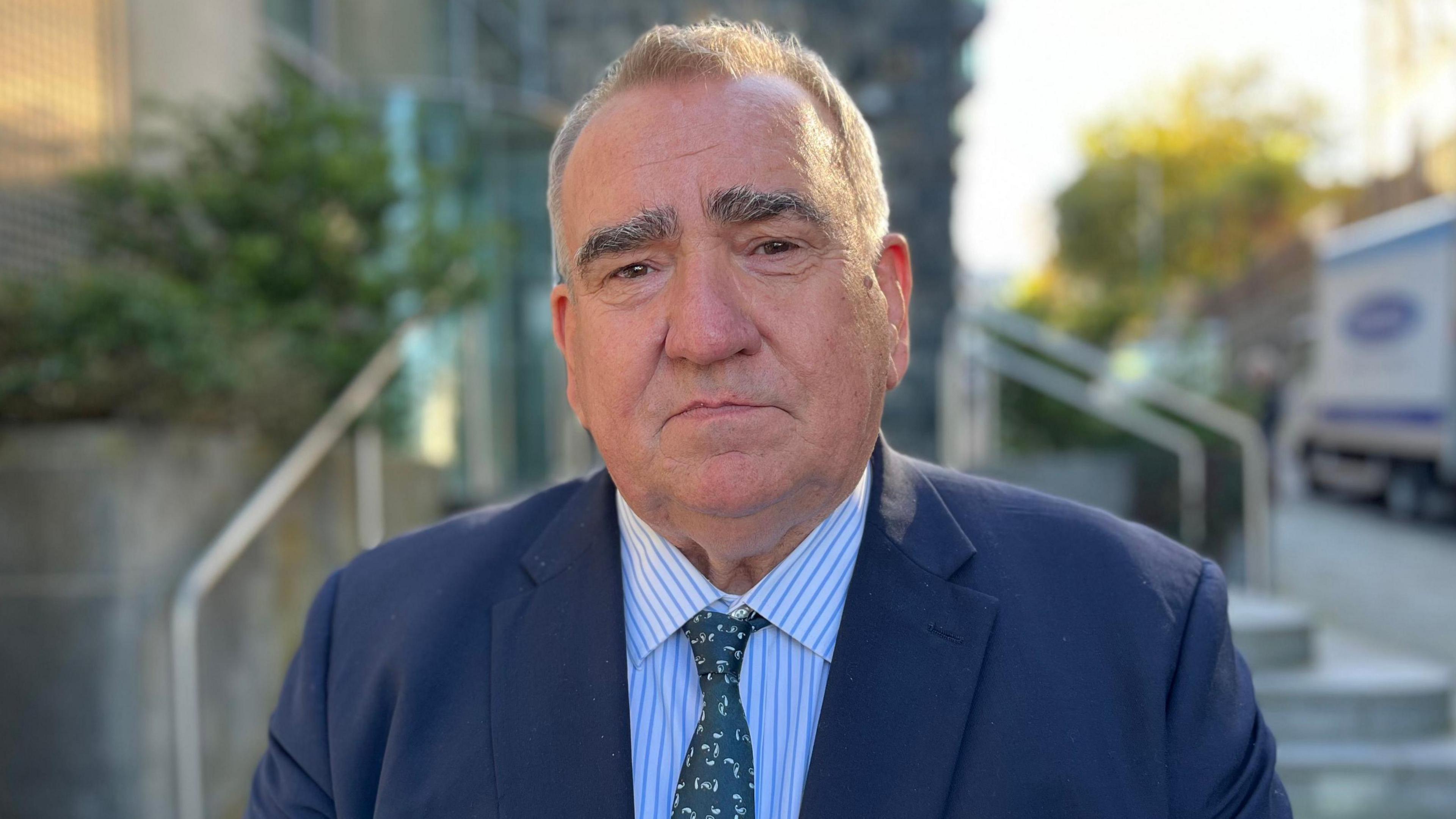
Deputy Simon Vermeulen said the Guernsey Party was set to disband
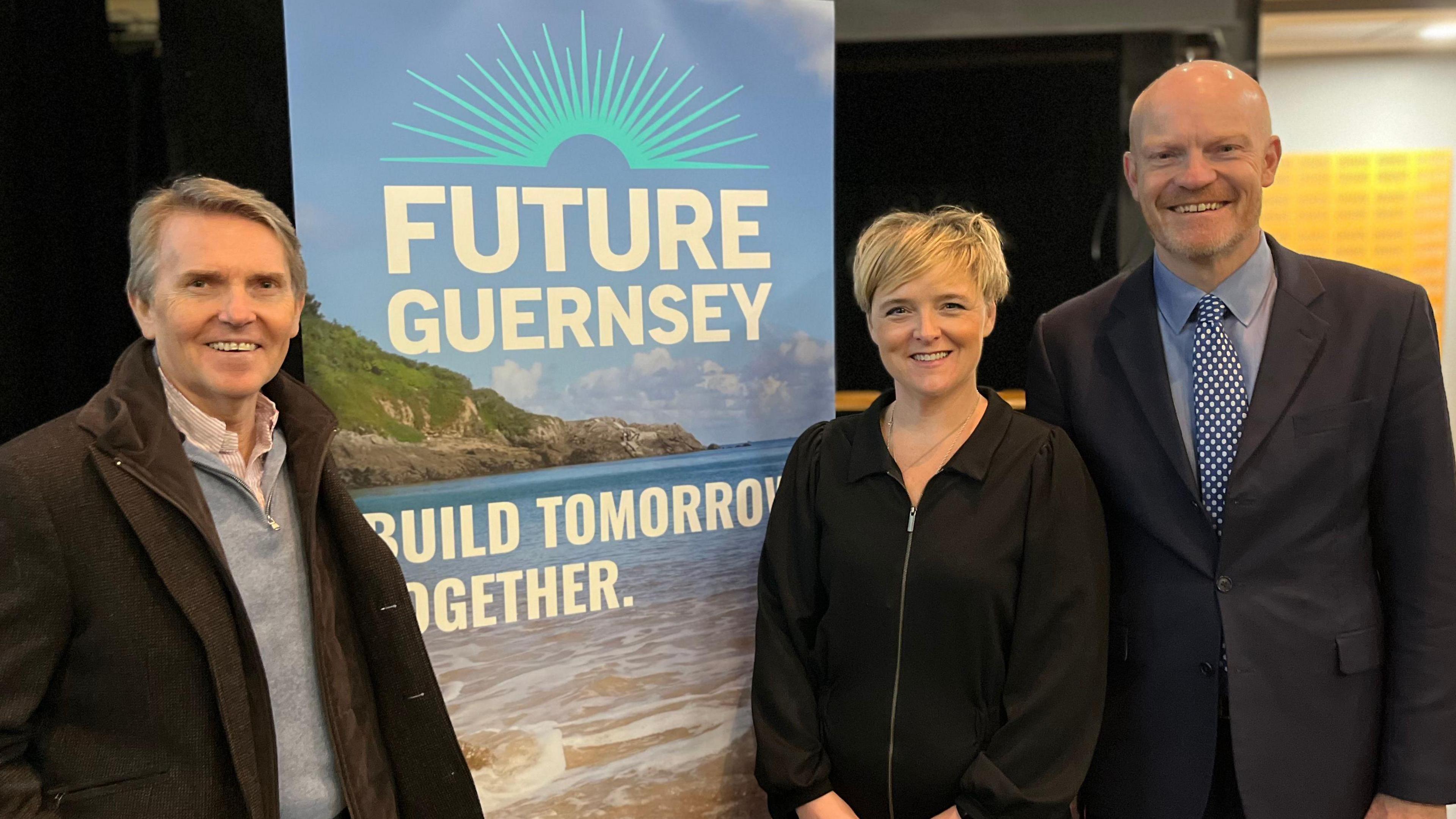
Future Guernsey was launched in November 2024
Meerveld, who founded a political party called the Islanders' Association in March 2018, said he would not stand for a party but believed they were "no bad thing".
He said: "The more people go out and make clear their intentions - saying if they are elected, this is what they would do - the more informed the public will be."
He admitted his first foray into party politics was not a success, as the Islanders' Association did not make it to the 2020 general election.
But he said it did lead to some outcomes he thought were positive.
He said: "The Islanders' Association's primary objective was promoting island-wide voting and we got that, so it was successful there.
"The problem was trying to get a group of deputies to agree. Getting a disparate group to agree without a whip, without a UK or US-type bipartisan structure of strict party rules is difficult."
According to Meerveld, "a lot of Guernsey people don't want to see that" when it comes to parties.
Before the launch of Future Guernsey, it undertook some research with 250 people, including a number of focus groups, in July and August.
According to the new group, 43% of those surveyed supported the idea of political parties, while 23% were opposed.
'Vote how you believe'
Former member of the Partnership of Independents Deputy Al Brouard said being a member of a party was good at the 2020 election.
In an interview which looked back at his 20 years in the States, he said: "If I hadn't been a member and known Deputy Tina Bury, who ended up being my vice-president, I wouldn't have stood for the Health and Social Care Committee presidency."
Exit Interview: Deputy Al Brouard
He also said having a party meant he had allies.
He said: "If you have 38 elected independents, it's difficult to know who will put who up for what.
"If you have the Van Party, the Guernsey Party, you know you have at least two or three people to vote for you".
However, he admitted he was not sure the way forward for the States was party politics.
He said: "It is very difficult to find areas of policy where 20 of you or so will all agree, whether it's education or health.
"People from a UK background are used to an adversarial, antagonistic two-party - maybe three at times - system, and you don't have much of a say on what is agreed. You are whipped into position.
"I don't see it as an honest position. I don't think it's right for Guernsey.
"I want people to vote for what they believe in, not what they were told.
"I quite like the Guernsey system where each person is independent, and I think this is why parties have struggled this term".
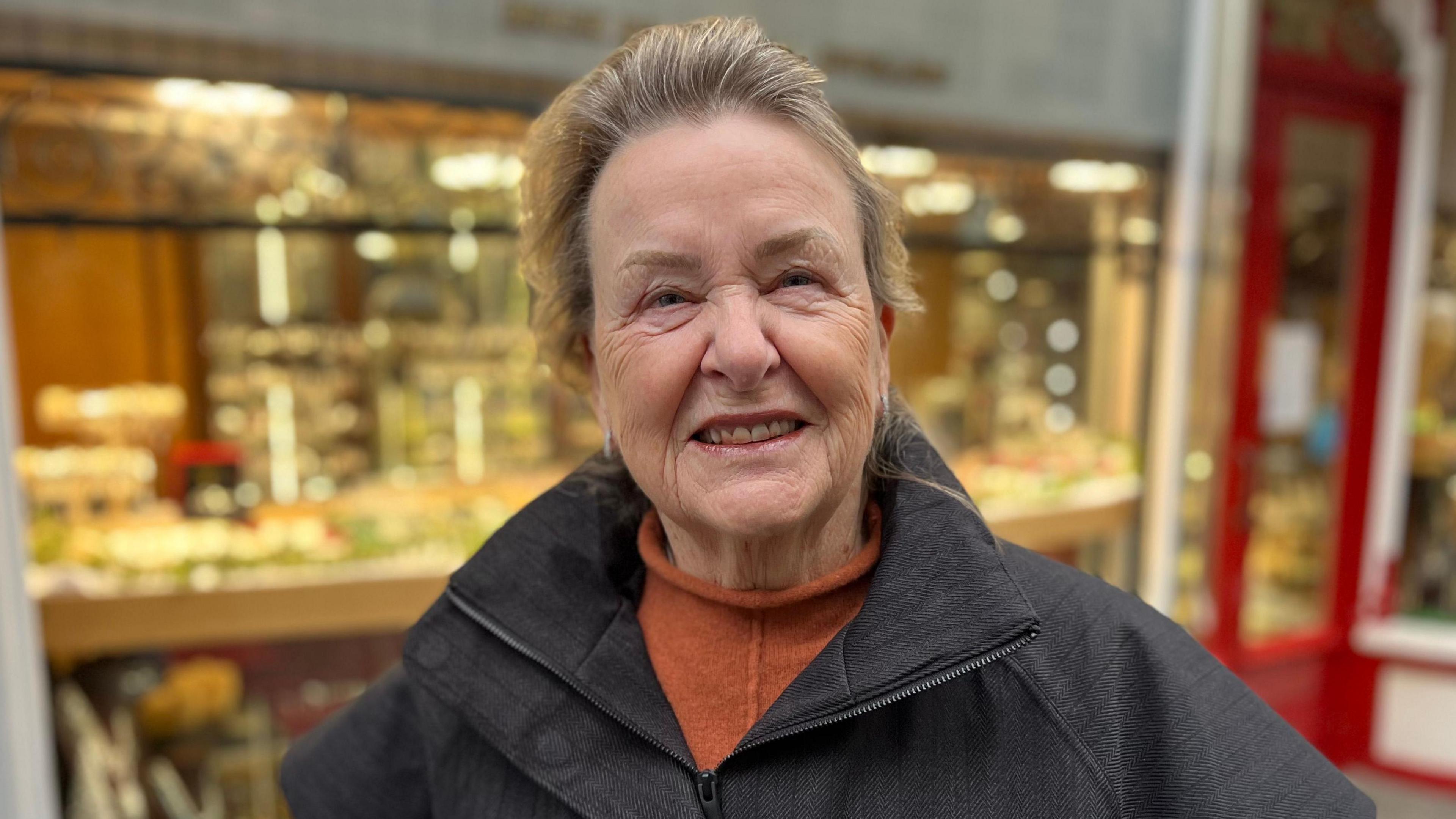
Jane De La Mare said she would be voting for candidates who wanted to reduce the number of deputies
In St Peter Port, Jane De La Mare said she thought parties could be a good idea, although it would be a matter of "trial and error, I suppose".
Chairman of the Medical Specialist Group Dr Steve Evans said he hoped the next assembly would focus on health and finding a sustainable long-term future for local healthcare.
Dr Evans added: "On parties, there are pros and cons to both. If you have a group of deputies with a co-ordinated policy, things are more likely to make changes.
"But we're a small island and there's an advantage to the personal touch of knowing your individual deputies".
Another shopper in town who wanted to stay anonymous told the BBC he would not be voting in June.
He said: "It's a waste of time - you vote them in and then they do what they want".
Course attendance to be published
Before the 2025 general election, SACC has organised a number of sessions to help prepare potential candidates.
Allow X content?
This article contains content provided by X. We ask for your permission before anything is loaded, as they may be using cookies and other technologies. You may want to read X’s cookie policy, external and privacy policy, external before accepting. To view this content choose ‘accept and continue’.
There has been criticism on social media of the decision to publish the details, but, despite this, SACC President Carl Meerveld said he intended to ensure the records of attendance at these courses were published.
He said: "The people attending get to choose whether they have their names published. But I think it's important the electorate know who has chosen to attend to make themselves an effective candidate.
"At the end of the day, if potential candidates aren't willing to take the time to attend these courses, then are they prepared to be a deputy?"
Who is standing?
When the BBC last asked deputies in June, just under a quarter of Guernsey's current States members said they would stand for re-election at next year's general election.
Former Treasury Minister Charles Parkinson said he would not be standing but had reconsidered and would be.
While, despite having said he would not stand, former Deputy Chief Minister Mark Helyar said he was now "considering" it.
From outside the States, former Wigwam Chair Susie Gallienne, architect Oliver Brock, former deputy Andrew Le Lievre, Guernsey Press columnist Tom Rylatt and activist Jayne Ozanne all said they were likely to stand.
Chief Minister Lyndon Trott, HSC President Al Brouard, former Chief Minister Peter Ferbrache and Lester Queripel said they would not be standing for re-election.
It could mean 33 of the current assembly stands for re-election in June.
Follow BBC Guernsey on X, external and Facebook, external. Send your story ideas to channel.islands@bbc.co.uk, external.
Related topics
- Published28 November 2024
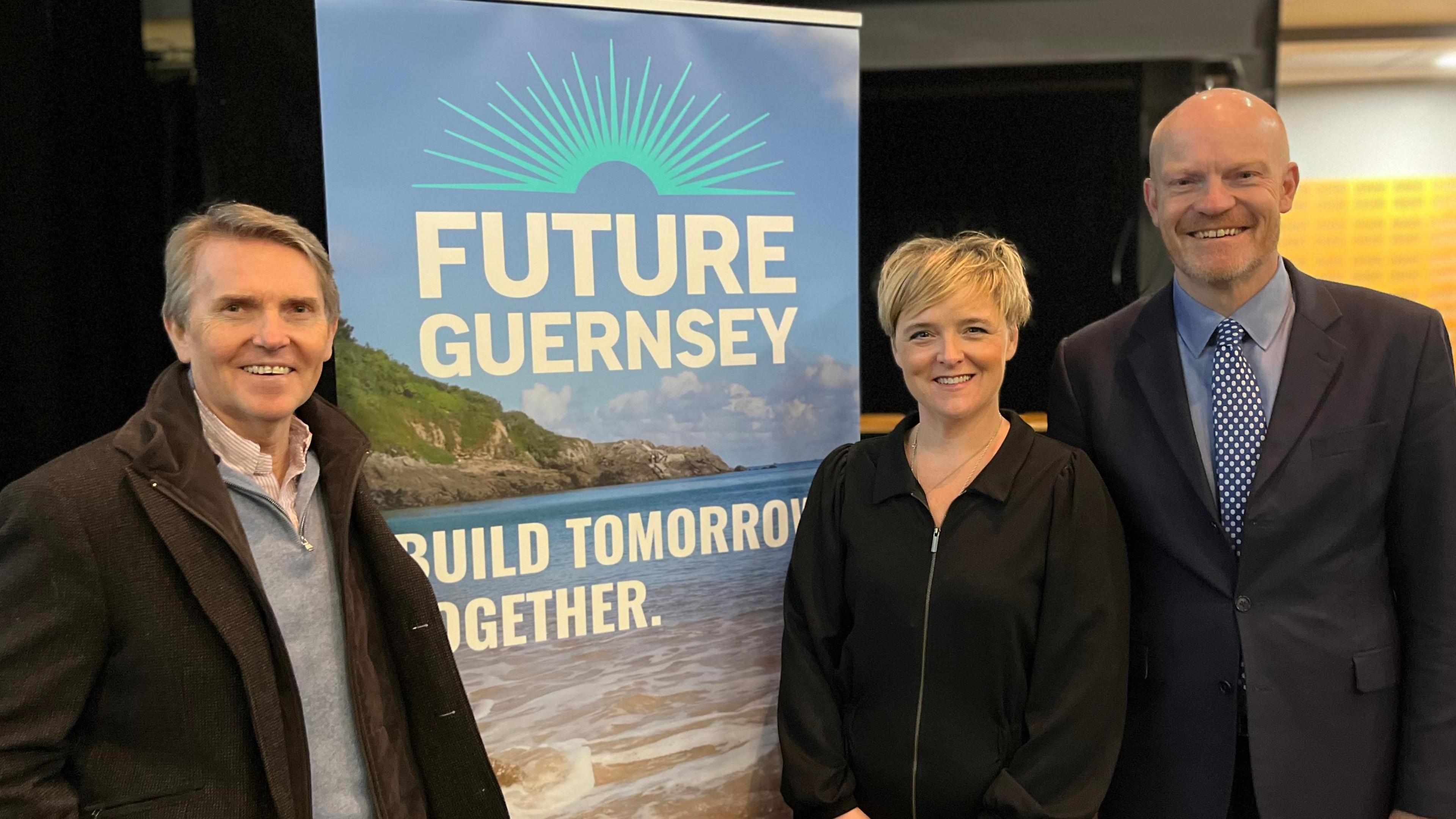
- Published6 September 2024
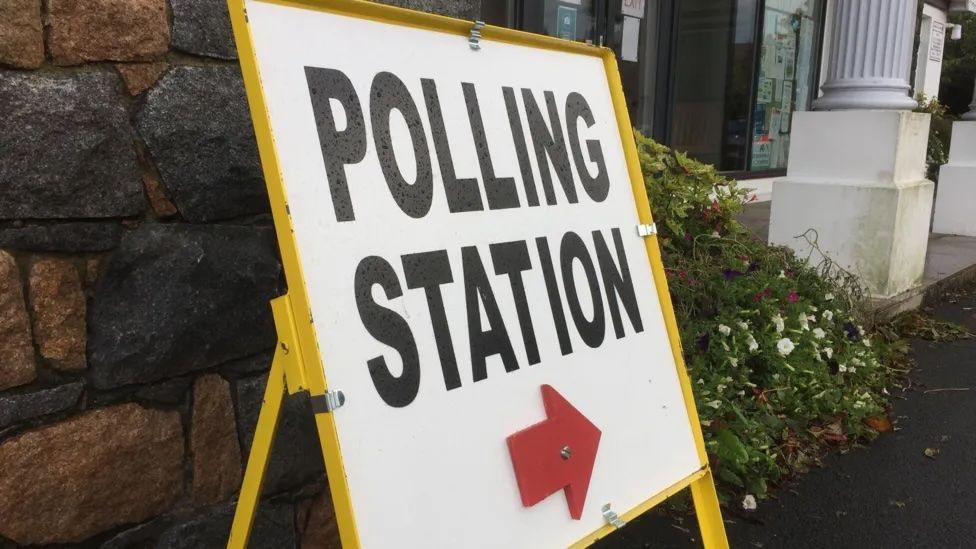
- Published24 May 2024
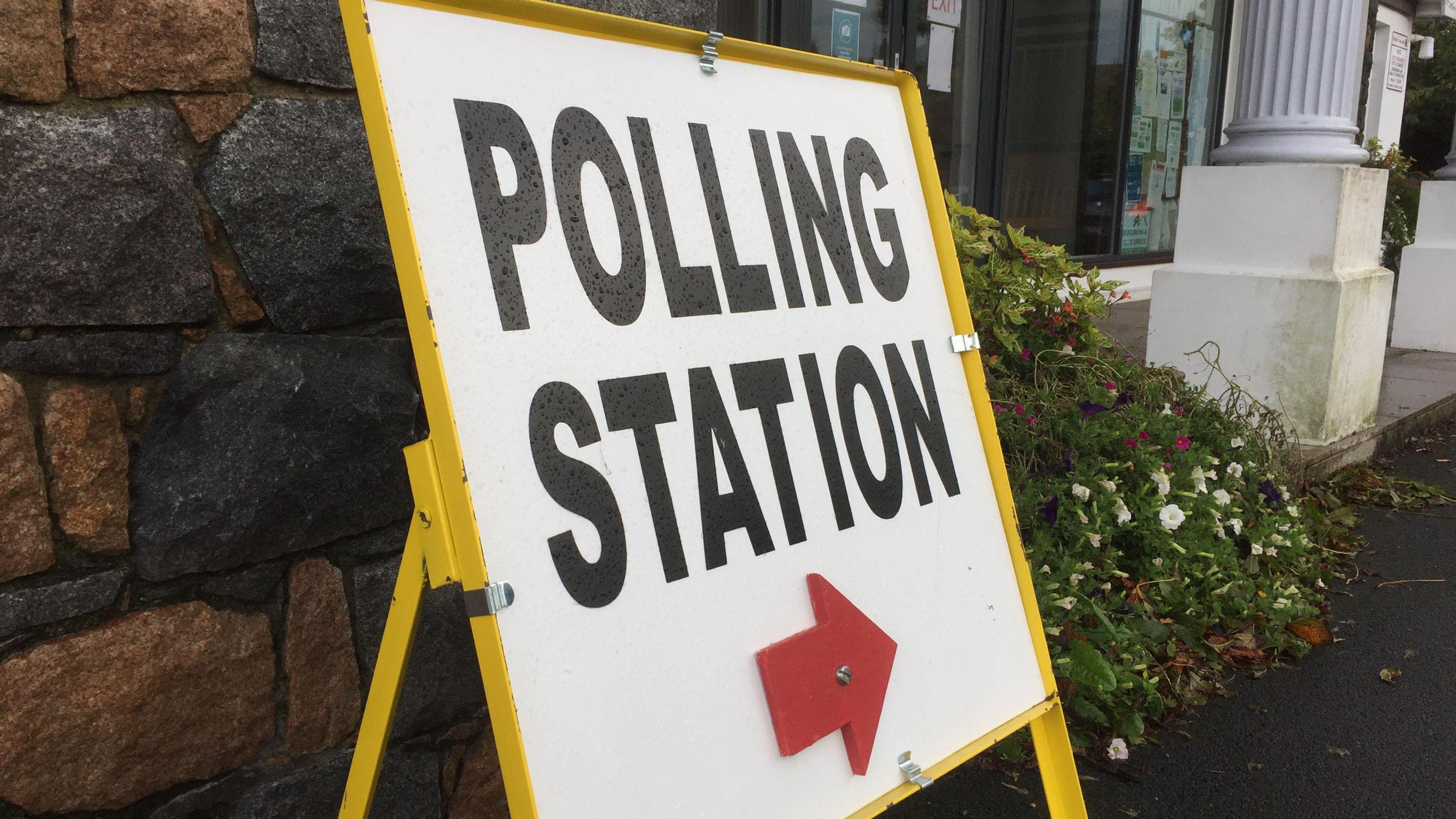
- Published18 June 2024
